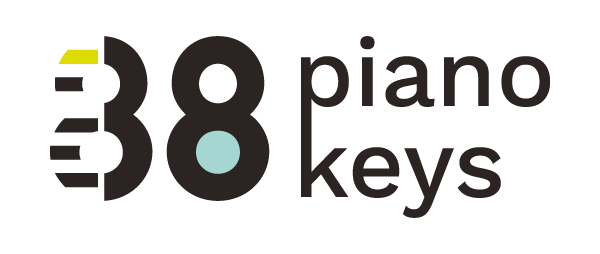Who is Frances Clark Anyway?
When it was finally my turn to take piano lessons (I couldn't wait as I watched my older sister begin lessons before me) it seemed that the spine of almost every book on the piano rack featured the words "Frances Clark Library." The memory of those books are directly associated to fond recollections of my mother as she was a piano teacher and kept stacks of them around the piano. It's hard to believe she taught 40-some students each week AND held down a 5th-grade classroom at the nearby school? By the way, I was never taught by my mother, she sent me to a teacher in a nearby town. I do believe that is why I'm still playing piano today :-).
of almost every book on the piano rack featured the words "Frances Clark Library." The memory of those books are directly associated to fond recollections of my mother as she was a piano teacher and kept stacks of them around the piano. It's hard to believe she taught 40-some students each week AND held down a 5th-grade classroom at the nearby school? By the way, I was never taught by my mother, she sent me to a teacher in a nearby town. I do believe that is why I'm still playing piano today :-).
 Since I'm not all that nostalgic or sentimental, those worn Look and Listen method books with that floppy-eared dog are no longer in my piles of books here in my studio. Nuts! How nice it would be to reminisce as it is clear to me now that Ms. Clark dominated my education at the keys.
Since I'm not all that nostalgic or sentimental, those worn Look and Listen method books with that floppy-eared dog are no longer in my piles of books here in my studio. Nuts! How nice it would be to reminisce as it is clear to me now that Ms. Clark dominated my education at the keys.
With this past experience, it always surprises me when someone in the world of piano education is unaware of Frances Clark (1905-1998) and the lineage she left behind. To them, she may just be an image--a sophisticated, inviting, white-haired woman--which appears with the The Frances Clark Center for Keyboard Pedagogy blurb usually found in the front of Clavier Companion Magazines. As the magazine states: the mission of the Frances Clark Center for Keyboard Pedagogy is
"to extend the influence of her (Ms Clark's) inclusive and revolutionary philosophy of music education at the keyboard."
Wow, one woman had that much direction, clarity, dedication, drive, determination and passion for teaching piano that she is now an institution? Ms Clark has to be more than an image, how did she earn her piano pedagogy matriarchal status?
This question got me thinking about Ms Clark's past. I bet she began teaching piano because she liked it and experienced some challenges and failures. She wasn't always wise with silvery gray hair, right? She must have begun teaching piano early in her life most likely with a different shade of hair. I imagine that with her tenacious tendencies, she couldn't stop thinking, dreaming, and unlocking the keys to the mysteries of teaching piano successfully to anyone.
Perhaps you've seen some of her inspirational quotes:
"Every child can know the joy of making music at the piano. "
"There is music in every child. The teacher's job is to find it and nurture it."
If Frances Clark was still with us, would she be pleased with the piano pedagogy legacy she left behind and the state of music education at the keys? Considering her mantras, I'm guessing she might be
- ecstatic about the number of piano teachers AROUND the world
- fascinated in (and at times frustrated with!) the technology used to enhance education
- thrilled to see the astounding talent of today's pianists
- encouraged to see teachers explore methods to serve those with special needs
- struck by the efforts of some to promote learning by ear, improvising and creativity
- curious as to how the piano community could start programs similar to those of the sports world and enroll every child in after-school piano lessons
- pleased with the ongoing studies to ensure top pedagogical instruction
- willing to meet the needs of today's child and connect with their musical interests and tastes
- never satisfied and continually pushing and striving for improvement in all areas of musical education.
Little to no research was conducted for this post. Completing plenty of research and a thesis on Lynn Freeman Olson (a descendent of Frances Clark's philosophy), learning from her highly respected apprentice, Sam Holland (a living institution) and reading countless articles by her esteemed colleagues it is apparent that this foremost "Pioneer of Piano Pedagogy" worked diligently and earned her legacy status. No disrespect was intended by guessing about her early years. It just dawned on me that everyone begins somewhere, usually at the bottom, in the trenches and aspires to move up and out. Ms Clark accomplished this in such a remarkable way and serves as inspiration for us all.
In closing, there's a personal reason why I felt the nudge to write about my Clark heritage. Both Clavier Companion and the National Conference on Keyboard Pedagogy--derivatives of her prestigious Center--have been long-time staples in my ongoing education as a piano teacher. The fact that I have been recently asked by Sam Holland to serve on the NCKP 2015 planning committee and by Pete Jutras to pen a regular column on teaching with apps at Clavier Companion has allowed me to step directly into her lineage. It seems things have come full circle and I am extremely honored and eager to carry on her "revolutionary philosophy of music education at the keyboard."
-Leila
II III II III II III II
Can't wait--7 days and counting until my book is released!
The iPad Piano Studio: Keys to Unlocking the Power of Apps
Click here to pre-order.
[contact-form][contact-field label='Name' type='name' required='1'/][contact-field label='Email' type='email' required='1'/][contact-field label='Website' type='url'/][contact-field label='Comment' type='textarea' required='1'/][/contact-form]

